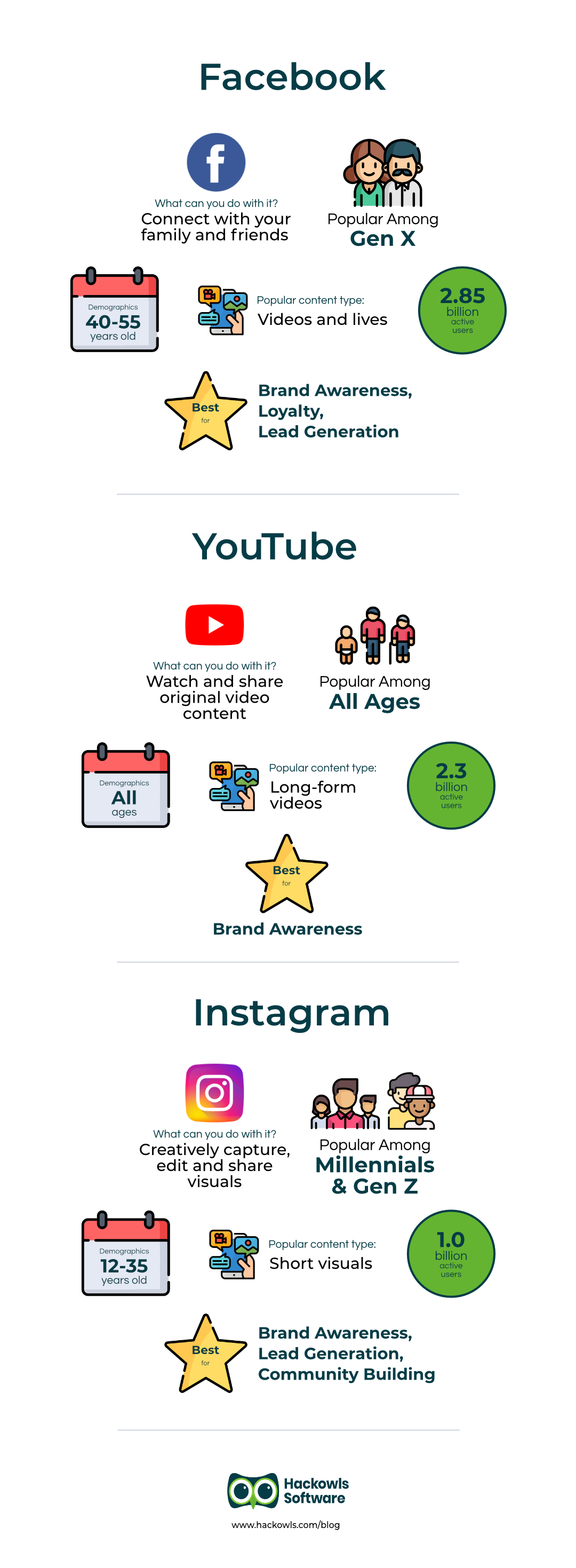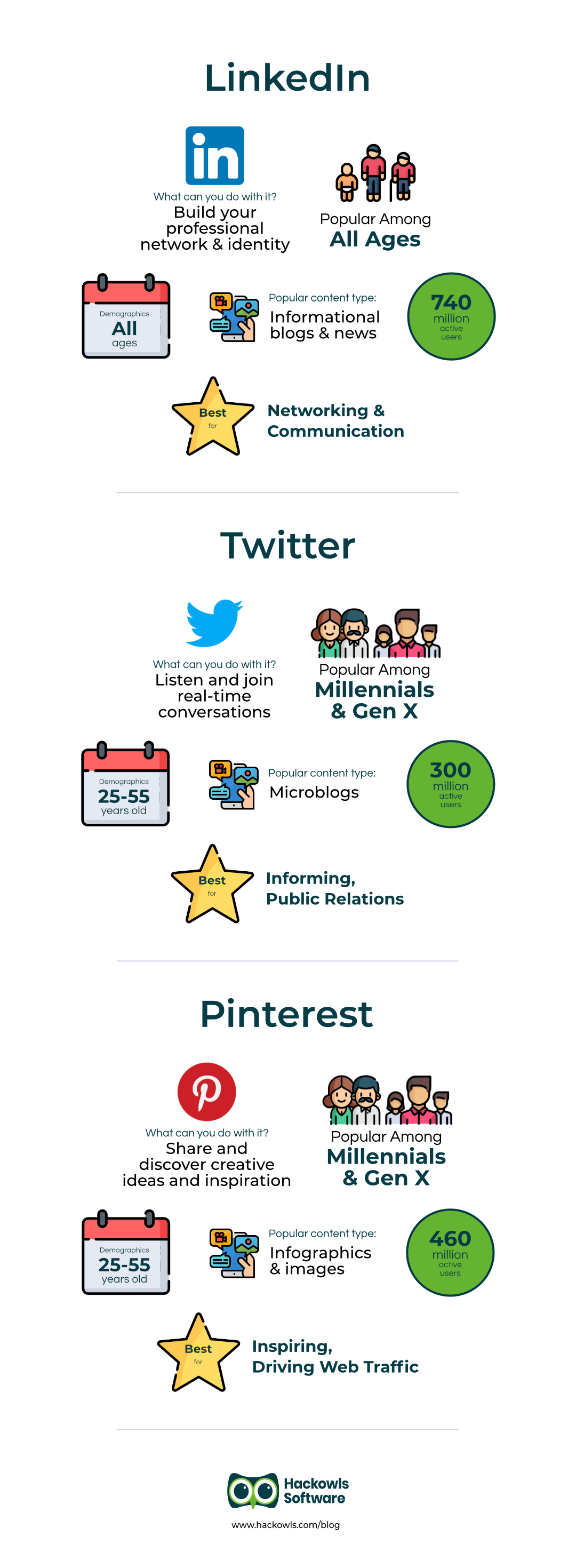Using social media for your business is a huge opportunity to build awareness and grow, no doubt. Being actively engaged with your audience on social media is an essential part of any business today. There are more than 3.6 billion users spread across 15+ social media platforms.
Social creatures like you and me, we love being social. But as a business, being social on social media is a time consuming job. And using every single platform is not possible. Moreover, it’s unnecessary.
To make your presence most effective and impressive, it is best to concentrate on one or two social media platforms that are right for your business. Only the right fit of social media platforms will amplify your efforts and give you the best return.
Now, Which Is the Right Social Media Platform?

Facebook has 77.58% traffic whereas LinkedIn stands with a 0.2% share of traffic. See the difference?
No, don’t already conclude that Facebook is the best. It may not necessarily be the right social media platform for your business.
Unfortunately, one size doesn’t fit all. There is no one right social media platform for all. However, there is a shortcut to figure out which one might work best for your business depending on a few factors.
Before jumping in, we need you to figure out and understand two things:
- What are your social media goals?
- Who is your target audience?
Find how to answer them both here: 6 Things You Need to Know About Using Social Media for Business
Once you have identified your social media goals, who exactly your audience is and what kind of content they like to consume, the right social media platform for your business will become obvious.
All About the Different Social Media Platforms:


Social Media Platforms by Numbers:

Facebook:
Facebook was the first social media platform that gained immense popularity. Today:
- Facebook users watch 100 million hours of video content every day
- Users share 1 million links every 20 minute
- 80.4% of social referrals to ecommerce sites come through Facebook
- Facebook ads are the most affordable ads for small businesses, and are linked with Instagram and Messenger too
- Businesses can host live video events and even charge admission, adding a revenue stream
YouTube:
Consuming video content is probably your audience’s favourite and YouTube helps you do just that:
- 79% of internet users say they have a YouTube account
- Every minute, 500 hours of content are uploaded to YouTube
- Pew Research Center says the average YouTube video length is 12 minutes
- We watch over 1 billion hours of YouTube videos a day, more than Netflix and Facebook video combined
- The number of channels earning six figures each year on YouTube has increased by 40% year on year
Instagram:
Instagram is one of the world’s biggest influential social media platforms and is a key to marketing:
- 70% of Instagram users are under the age of 35
- More than 90% of influencer marketing campaigns use Instagram
- 17% of Instagram users have clicked on a brand tagged by a brand/seller
- 66% of people say they use Instagram specifically to interact with brands
- Iconosquare approximates 4.7% engagement level for branded content
LinkedIn:
Businesses looking to connect with other businesses, looking to hire employees and individuals building their personal brand will tell you LinkedIn is best:
- Content creation on LinkedIn increased 60% in 2020
- According to LinkedIn, over 100 million job applications are sent each month
- 3 people are hired through LinkedIn every minute
- An ad on LinkedIn can reach 13% of the world’s population
- 33% of B2B decision makers use LinkedIn to research purchases
Twitter:
The go-to place for trending and real-time conversations, Twitter is a valuable marketing tool:
- Twitter ranks 7 (out of 9) digital platforms for digital trust
- 82% of B2B content marketers used Twitter for organic content marketing in the last 12 months
- 5,787 tweets are tweeted every second
- 40% of Twitter users purchase after seeing it on Twitter
- Ad engagement on Twitter increased by a 35% in 2020
Pinterest:
If your audience is eager for new ideas and prepping for the future, then Pinterest is your platform:
Each social media platform is used in different ways to do different things. There really is no one size that fits all. Finding the right social media platform for your business will take some of your time and thinking.
Firstly, understand your brand personality and goals, the nature of your business, learn what your audience likes to see and how you want to engage with them. Align your business needs with social media platforms and how they are used. Explore your strengths, goals and don’t shy away from asking for help.
If you’re confused among a few, set out on a test run. Engage with your audience on multiple platforms for a few months before you make your decision.



